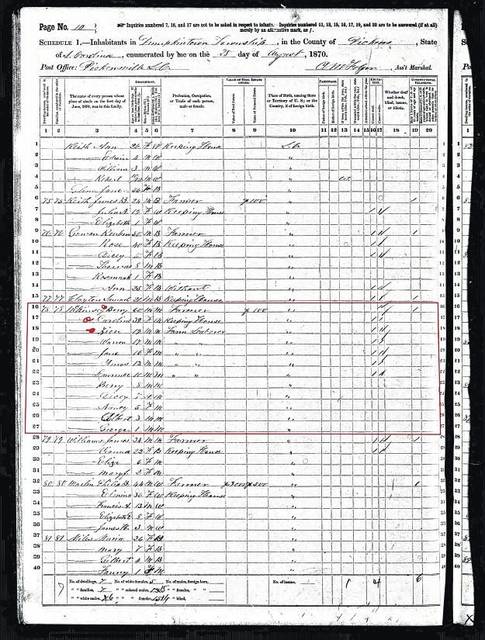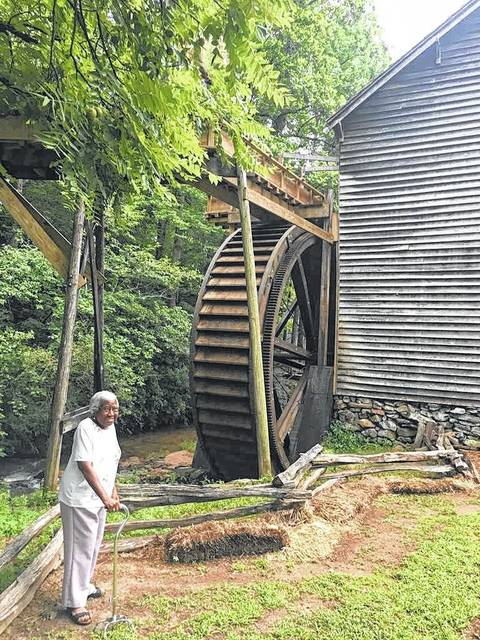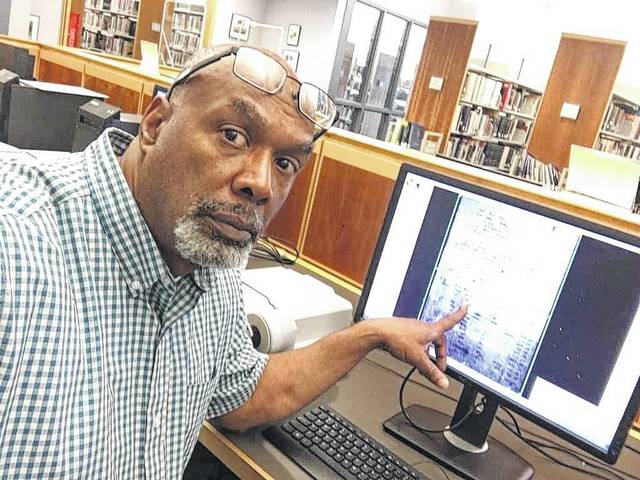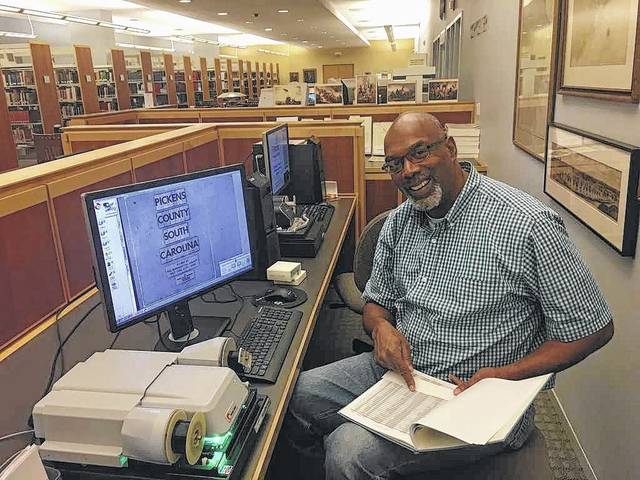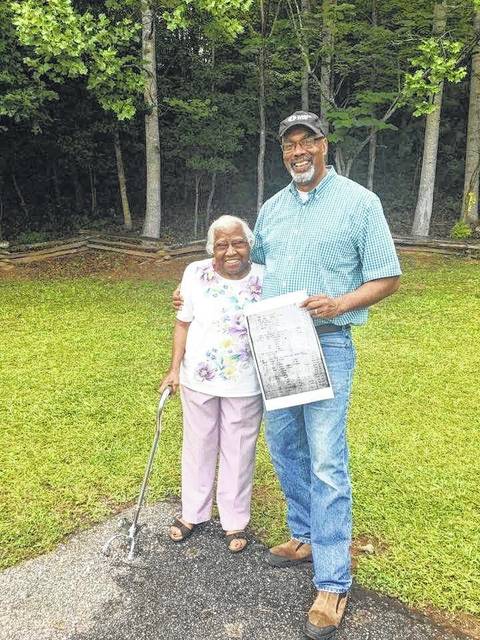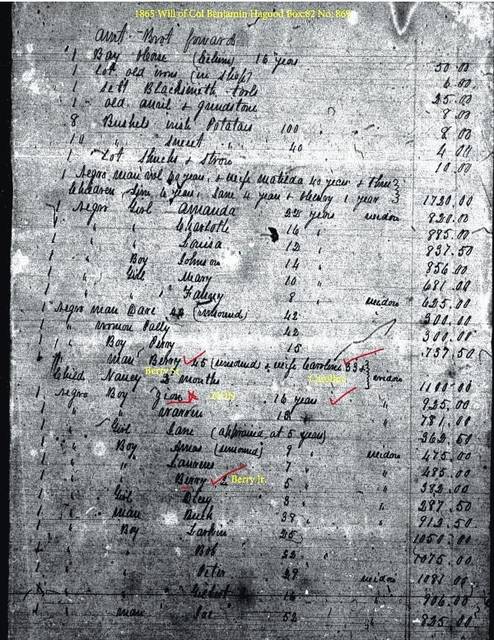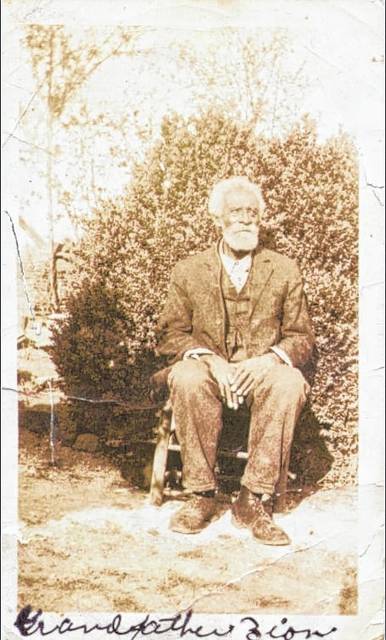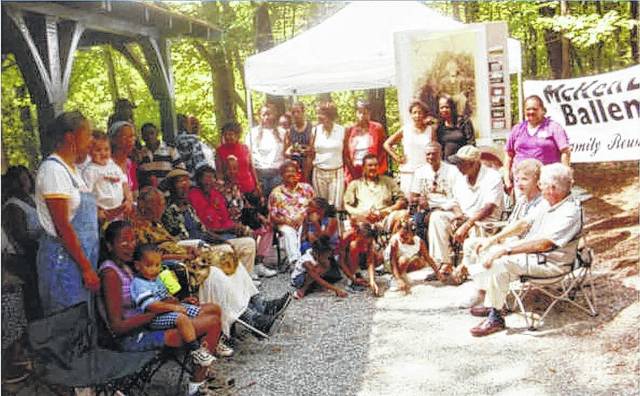PICKENS — For 172 years, the Hagood Mill has been a landmark in Pickens County. Once a bustling center for town commerce, the mill is better known today as a venue for music, folk art or seeing first hand a rare glimpse of history.
But according to one local family — and a 40-year investigation into their family tree — you only know half the story.
“In short, my family was the means by which they (the Hagood family) amassed their fortune,” said Aaron Mair, family historian and descendant of the McKenzies — Hagood slaves.
“They were the ones who operated the Hagood Mill, they were the ones who ground the grain and corn that he (Col. Benjamin Hagood) was able to sell, they were the ones who maintained the property,” said Mair during an interview. “It’s a significant piece of history that’s missing from the mill.”
On Saturday, the McKenzie descendants are returning to the mill to see not only where they came from, but to pay their respects to family members believed to be buried in the “slave section” of the Hagood family cemetery.
“Berry and Caroline McKenzie are on my maternal, paternal side,” said Mair. “So, they’re from my mother’s father’s side of the family tree. The family is obviously older than that, but that’s where the records start — or at least what we’ve found so far.”
According to the 1870 US Census, Berry and Caroline had 10 children ranging in ages from 19 to 1-year-old. Their eldest, Zion McKenzie, was Mair’s great-great-grandfather.
“From what we’ve discovered so far, the bulk of the slaves owned by the Hagoods — at least a third — were my family,” said Mair. “Next, I’d like to begin researching insurance records. A lot of people don’t realize that big insurance companies invested heavily in the slave market. Their records might shed further light on our family history.”
Although a historical endeavour, Mair’s search has also been an intensely personal one.
“I can’t tell you what I felt when I saw (Benjamin) Hagood’s will,” said Mair. “There were names — people — not only being categorized by ‘worth’ but their entire futures were being passed on to his (Hagood’s) family. To see your great-great-great grandparents on a piece of paper like that … There are no words for what has happened. No words for what has been lost.”
In Hagood’s will, Berry and Caroline were listed as a married couple … and worth $1,100. Zion, at 16-years-old, was listed at $925.
“There are stories of captured slaves throwing themselves overboard the ships that were bringing them here,” he said. “They would rather commit suicide than be chained to that life because it wasn’t just them, it was in perpetuity. All of their children would be slaves, their grandchildren. These are stolen futures.”
But for the first time in 151 years, the McKenzie descendants are gathering to celebrate their exodus from slavery at the mill.
“This is a chance for us to heal from what happened to our family, for closure,” said Mair. “But it’s also a chance for us to highlight a piece of history that no one really likes to talk about. You see it all the time at historical sights, monuments and buildings: Everybody likes to marvel about the pyramids, but no one wants to talk about how they were built.
“Slave labor happened, it was very real and there was a lot of people that benefited from it,” he said. “You see these ‘great families’ — and I’m not discounting the good some of them have done — but would that even have been possible had they paid their workforce?”
Whether admitted or not, slavery was an integral part of South Carolina’s history, Pickens County included, Mair said. But as shameful as that past might be, hiding from it is not the answer.
“There’s no marker at the mill for the slaves that built and ran it. There’s no mention of the black men, women and children that helped to raise one the area’s most influential families to prominence,” he said. “That’s a mistake, and a dangerous one at that. You have to create that dialog and try to explain the unexplainable. You have to be open to receive, atone and account for this legacy.”
Following the Civil War, the McKenzies crossed the Saluda and settled in the Travelers Rest area where some descendants continue to reside today. Gradually, memory of where they had come from faded from the generations until it was unearthed with the help of local libraries and historical groups.
“I really can’t thank the people at the Pickens and Greenville County library systems enough,” said Mair. “They went above and beyond in helping to track this all down.”
But rather than mourn, reflect and heal in private, the McKenzie family is hoping others will join them on Saturday at noon at the mill for this moment of reconnection and reflection.
“It’s important to do this,” said Mair. “It’s important to recognize both the progress made and the immense amount of work remaining to reconnect families to their heritage.”
Hagood Mill is located at 138 Hagood Mill Road in Pickens.
